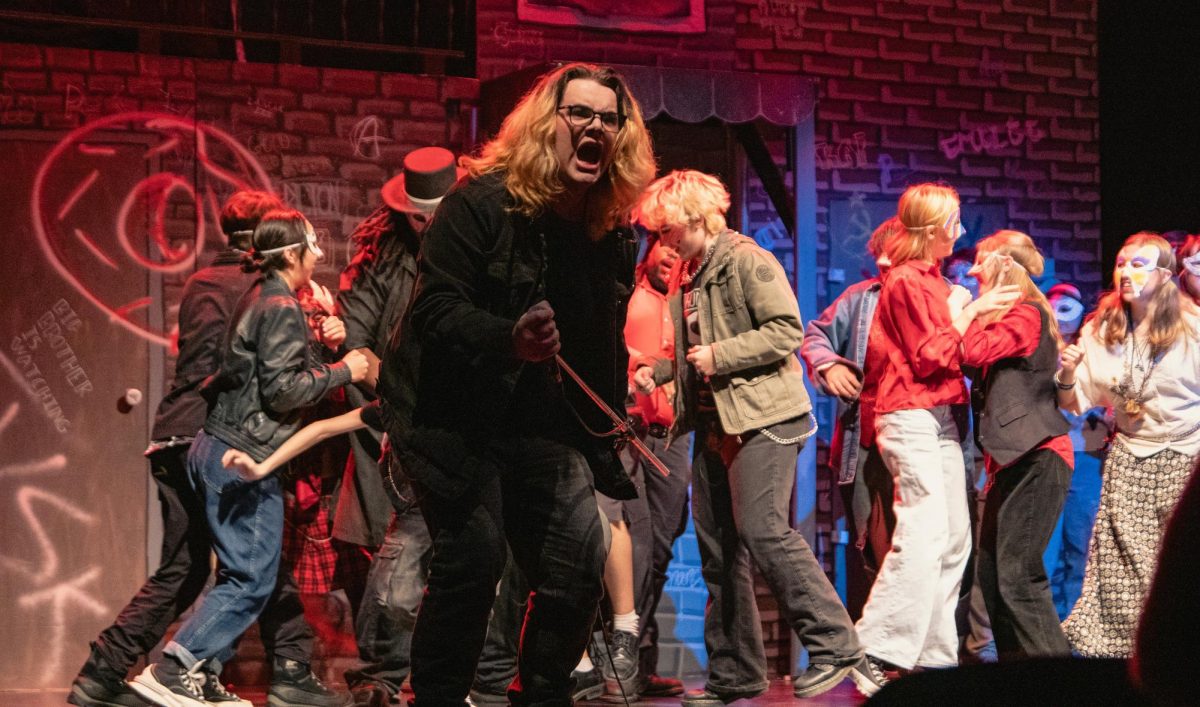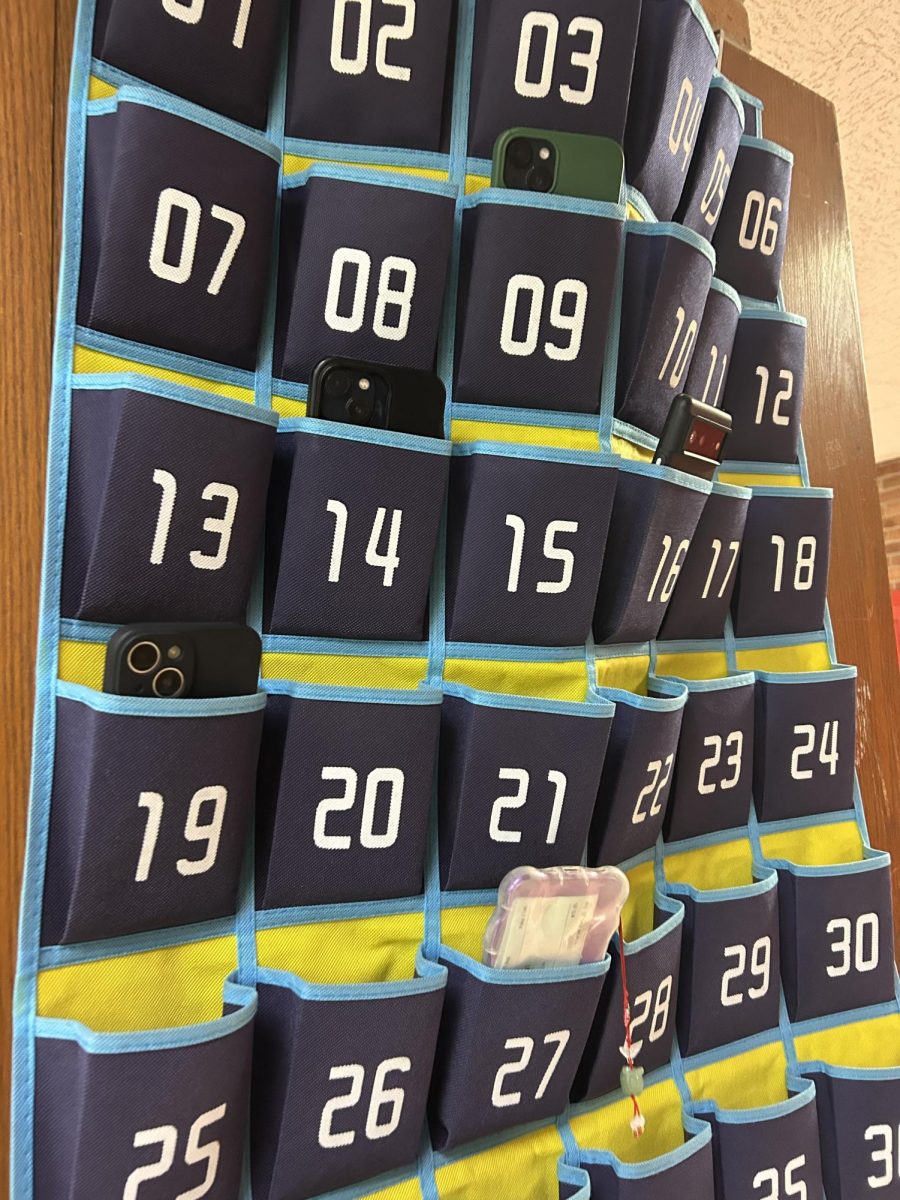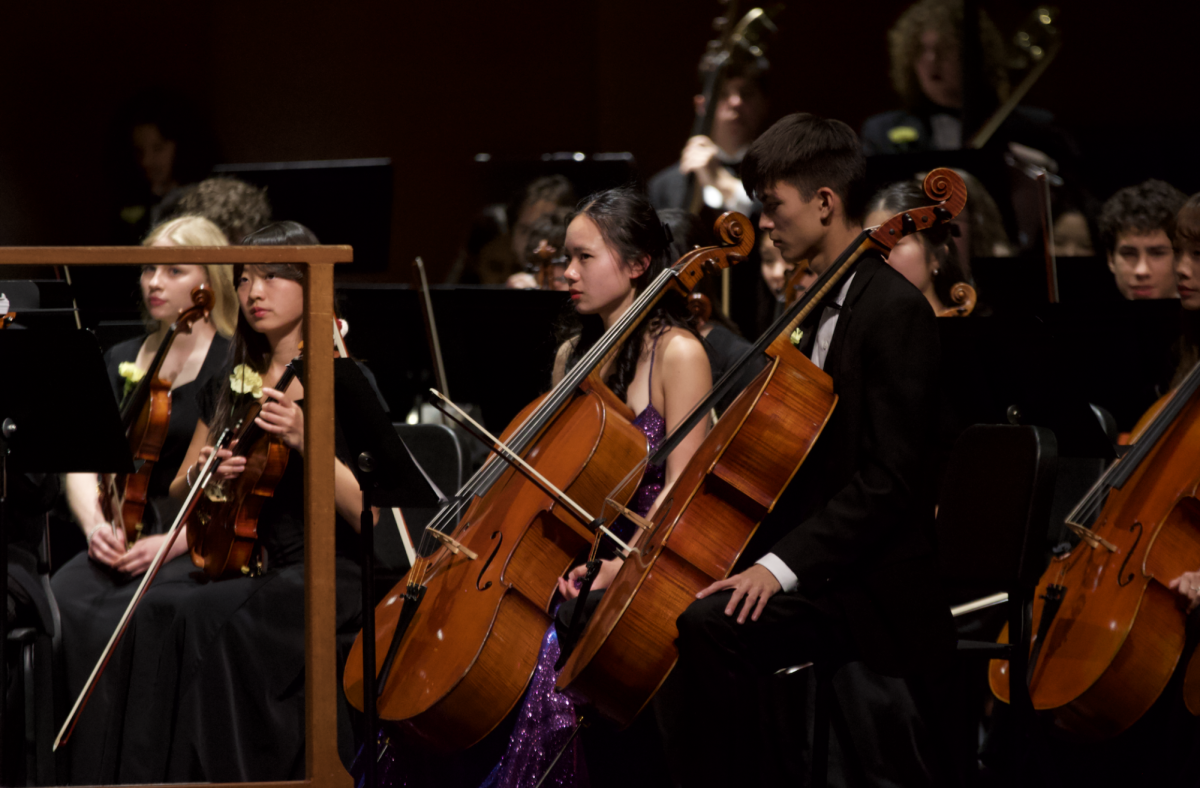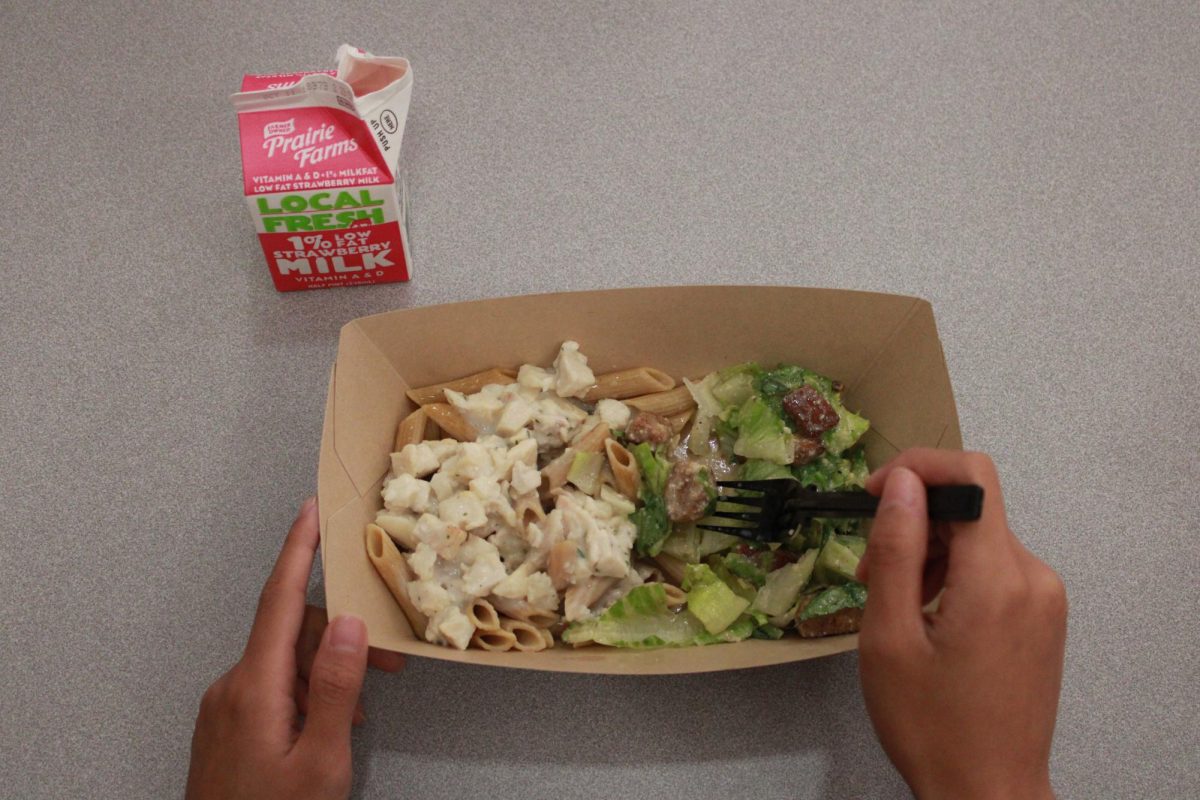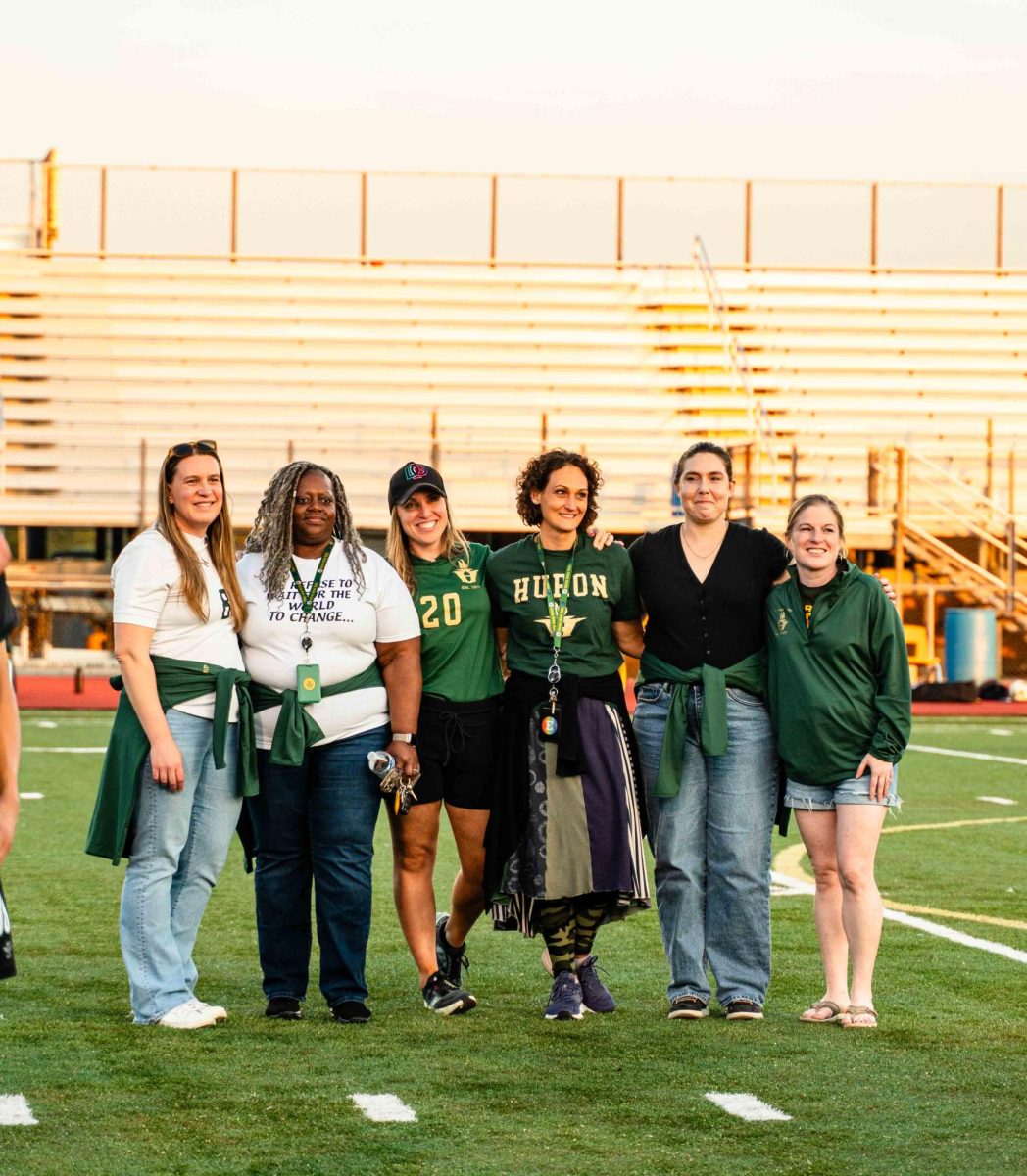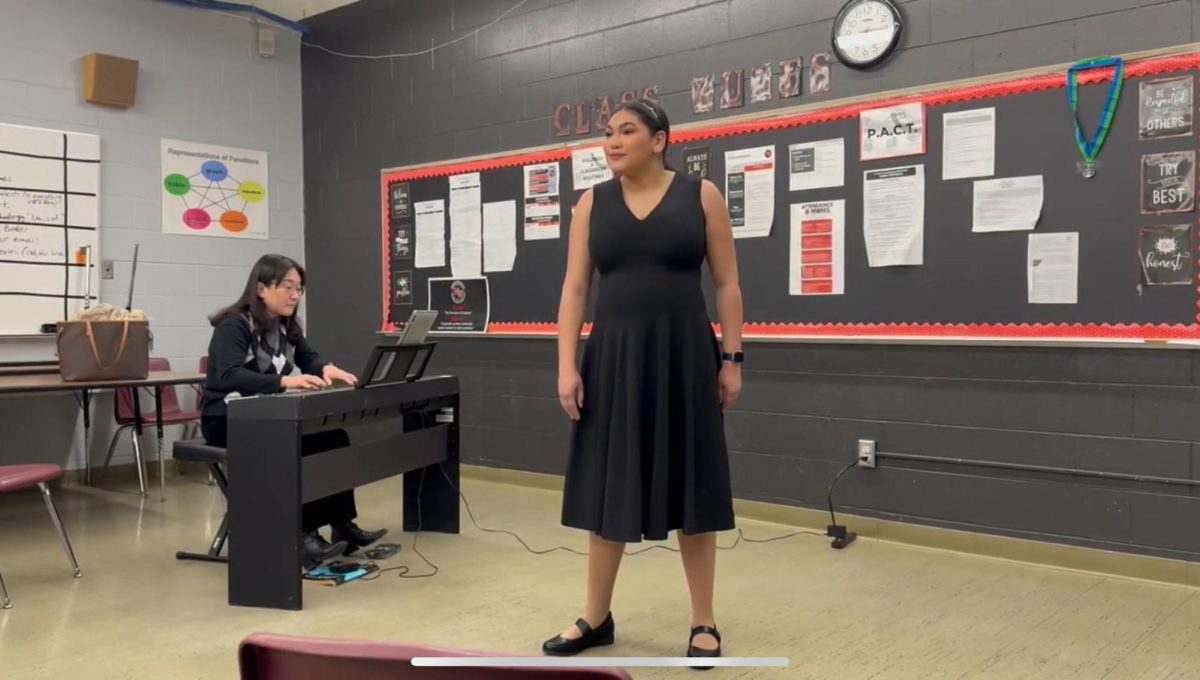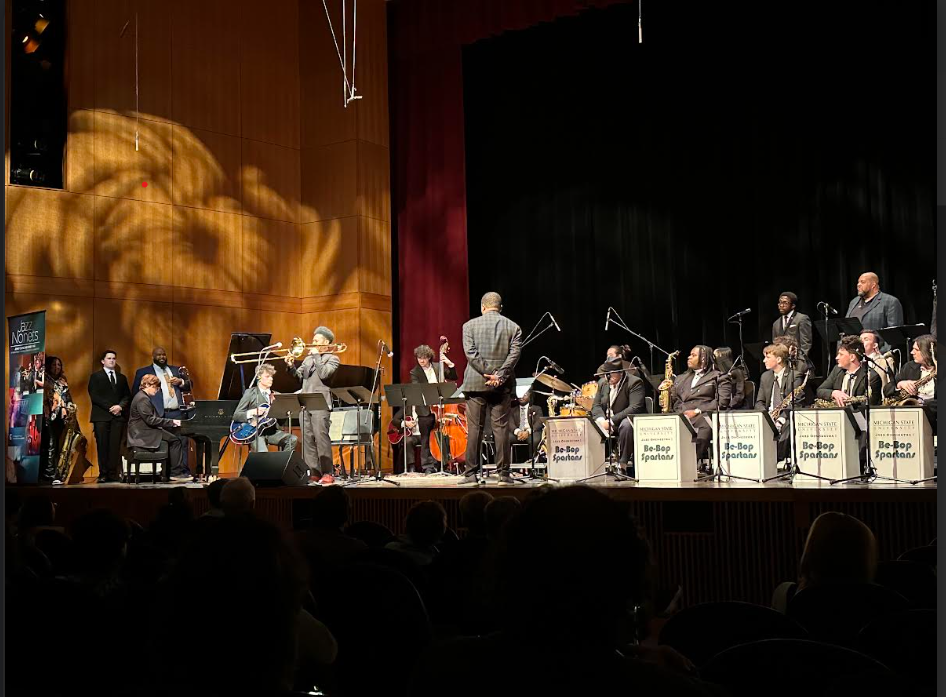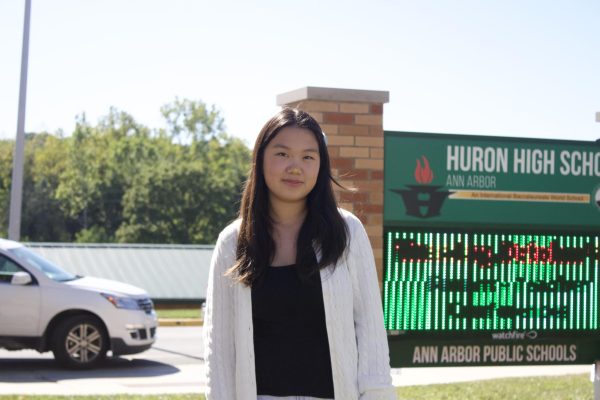On the weekend of Nov. 15-17, the Huron Players’ countless hours of effort will culminate in the show “Romeo and Juliet.”
Originally written by Shakespeare in the late 1500s, the play tells the tragic romance of two youths with feuding families that ultimately end in their deaths. The story has become a classic, being read in schools and adapted for numerous Broadway shows, films, and other creative projects.
The Huron Players is taking on the tale this fall but with an unexpected twist: the story is set in 1970s Punk Rock London, where Juliet Capulets’ family are punks, while Romeo Montagues’ family are Catholic preppies.
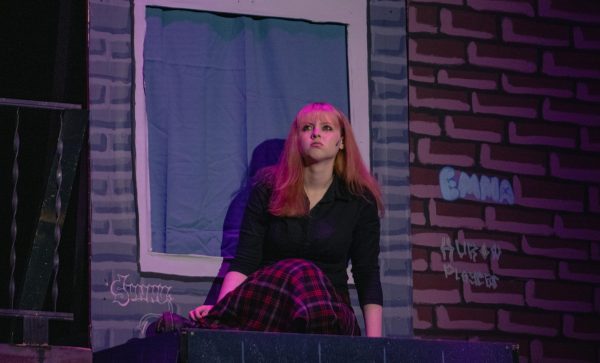
The unique interpretation of the show spins the classic on its head and births the show a new life through British accents, smokey eyeshadow and leather jackets, all the while actors speak in Shakespearean.
During the 1970s in the U.K., the punk movement arose as a response to the social and political struggle that the country was facing. The movement was based in music, led by bands like the Sex Pistols or the Crash, but it also became more than that. The movement was anti-establishment and inclusively individualistic, providing a way to express oneself when doing so was difficult.
The punk movement, however, created a cultural clash between Catholicism and the punk lifestyle — setting the basis of HP’s rendition of Romeo and Juliet.
Growing up, Clarence Collins III, the director of the show, had an affinity for British culture and the alternative scene.
“I watched a lot of Channel Four and BBC growing up,” Collins said. “So I had the idea of having the two warring houses being 70s, punk explosion culture, with an evangelical Christian vibe.”
Collins thought of the concept as the first initial idea and then continued to go with it.
“As a jazz musician, a lot of [my] ideas come kind of spur of the moment,” Collins said. “When you brainstorm and direct a group of people, you want to run with a concept to see how far you can take it. And eventually, it just turned into this.”
Collins says that the students loved the concept as well, which spoke volumes for them.
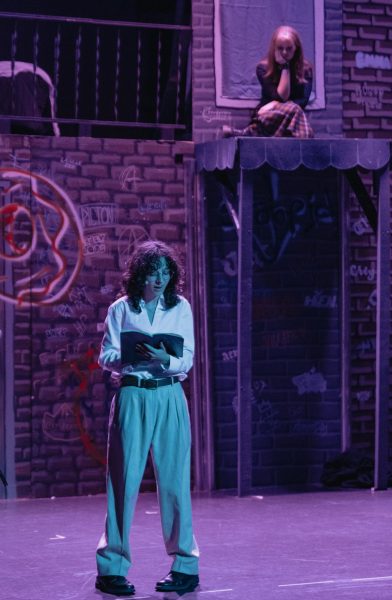
“The kids really took to the costumes, the makeup, set design and even the accents,” said Collins. “Punk culture is something that comes in times of adversity, and I think a lot of people are looking for that. So the fact that the kids took to it is even more telling.”
The students themselves are feeling a load of emotions, especially the lead actors.
“I feel so happy and honored, but I also feel very, very stressed, ” senior Toby Mayo said about playing the role of Romeo.
“You’re in the mindset of this character who is going through so many emotions all at once, and it’s a lot to take in,” Mayo said. “You have to think, ‘Okay, well, I’m not actually dead right now, but the character is.’ And then I have to get up and do it again like the character never died for three days in a row. It takes a lot to do that, but also it’s one of my strongest scenes, and it invokes so much feeling with the audience.”
Senior Sunny Kernahan, who played Juliet in the show, agreed.
“Playing the character has been great — it’s such an honor, obviously,” Kernahan said. “But it’s also been uncomfortable in the way that being given such a big role is super stressful.”
Freshmen are also anticipating their first show.
“I’m really excited. Our actors are so good,” freshman Phoebe Kinnunen said, who played Third Watchmen in the show. “You feel the last scene so much it hurts. [During the scene] I’m trying to stay in character, but it’s hard because it’s so good.”
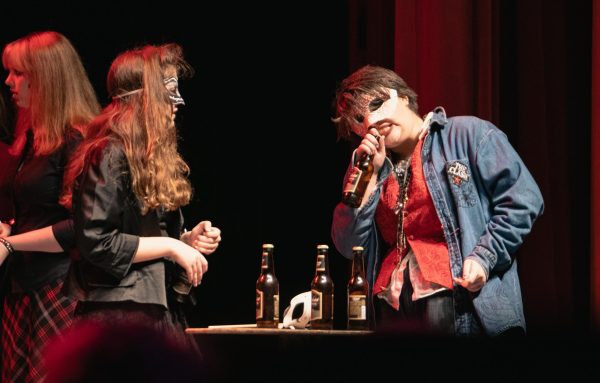
Romeo and Juliet and HP as a whole have not only provided a space for performance and community but have also taught actors valuable life lessons.
“I think I learned a lot from the show. As someone who has previously done theater, I think you learn something new every time, even if it isn’t your first show,” freshman Lorena Moore said, who played Paris’ page in the show. “Because it’s Shakespeare, it’s hard sometimes because you don’t always know what’s going on, but you have to make them make sense for the audience.”
“[HP] has taught me to be considerate of other people’s growth,” Kernahan said. “It’s easy to get caught up with yourself and get frustrated with other people. But we’ve all been there, and it’s a learning curve for everybody. You just have to be empathetic and there for everyone.”



